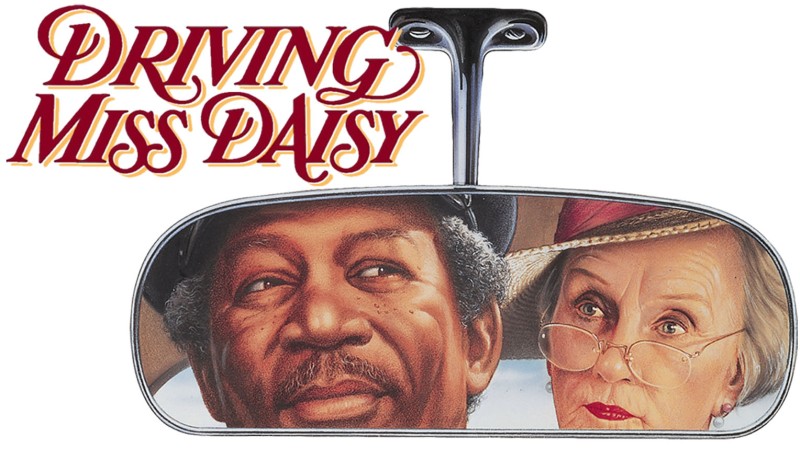MARCH 2, 2017 SCREENING: DRIVING MISS DAISY (1989)
Driving Miss Daisy is the ultimate low key movie. It’s easy to see why it’s the kind of film that would win an Oscar, but it’s no Sophie’s Choice or Kramer vs. Kramer type movie that markets itself as an TEAR JERKER MELODRAMA or an HISTORICAL EPIC. Rather, it’s a quiet film about the cultural changes in the deep south from the 30s to the 60s, as shown through the eyes of an elderly white lady and her earnest black chauffeur.
The film is almost entirely driven (no pun intended) on character interaction and dialogue between the two main characters. Dan Aykroyd plays a supporting role as the son of the title character, who has his own life to worry about but functions in this film as a plot device to move the story along (for example, Miss Daisy crashes her car at the start of the movie, prompting Dan Aykroyd to find a chauffeur for her) Given that this movie was made in 1989, it likely started Aykroyd’s transition from mainly comedic roles to mainly drama roles, and it certainly made Morgan Freeman a household name, as it was one of the three iconic movies he starred in that year (the other two were Glory and Lean On Me). Freeman and Jessica Tandy (as the title character) have to play their characters over several decades, and do so quite convincingly through the help of old age makeup.
The film adds a layer of drama by making Tandy’s character a minority herself, as she is a wealthy Jewish widow in the heavily Christian south. This becomes relevant several times in the film, like one December where she finally rewards Hoke (the chauffeur character) with a present, but swears it is not a Christmas present because she is not a Christian. There’s also the drama of one scene where the neighborhood synagogue is bombed. This felt someone forced to me as a plot device to make the main character come face to face with discrimination, but Driving Miss Daisy drives homes its points so subtly that nothing in the film was a distraction or seemed awkward.
Like the rest of the movie, Driving Miss Daisy ends not with a bang but a whimper, as the audience is given the suggestion that Miss Daisy died at the end of the film, only to discover (from Dan Akyroyd’s dialogue) that she’s still alive and well in her 90s, but has to go to a nursing home. Hoke has a heartwarming visit with his old boss, and the film simply ends.
If Driving Miss Daisy has one sin against it, it’s that the film is quite simply boring. It tells a good story, an important story, and a well made story, but one which I am not compelled to ever see again. Oscar bait, indeed, but a film that does a fabulous job of hiding that behind its humble little “aw, shucks’ presentation.
*** out of ****

